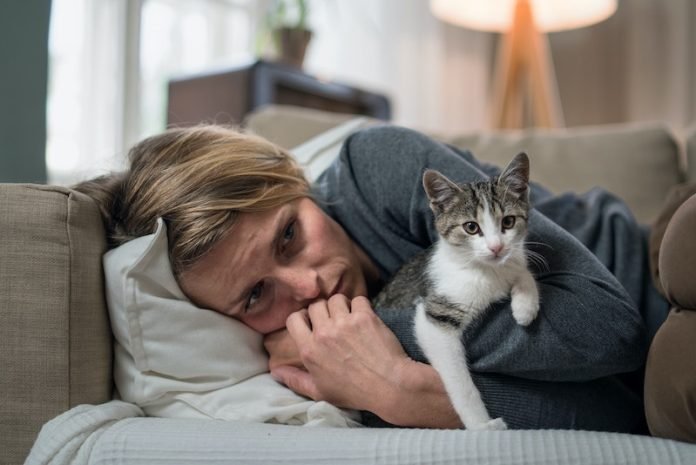
Anxiety is like an unwanted guest that doesn’t know when to leave. It can make people feel scared and worried a lot. Just like adults, kids can feel anxious too, but it’s not always bad.
Sometimes, anxiety helps us prepare for something big like a test or a soccer match. However, when it doesn’t go away or when it’s too much, it can make life difficult.
That’s why health experts are saying doctors should check adults for anxiety often.
A New Suggestion from Top Health Experts
For the first time, a very important group of health experts in America has said something new. They believe that doctors should always check all grown-up patients under 65 years old for anxiety disorder.
This group is called the U.S. Preventive Services Task Force (USPSTF). They believe checking for anxiety can help patients feel better and enjoy life more.
The USPSTF also wants adults to have regular checks for depression. This isn’t new; they’ve said it before.
Why No Anxiety Checks for Older People?
The USPSTF didn’t suggest anxiety checks for older people. Why? They didn’t find enough proof that these checks would help people aged 65 and older.
They also couldn’t say that regular checks for suicide risk are needed right now, even though it’s a major cause of death among adults.
The Impact of the Pandemic
The COVID-19 pandemic showed how important taking care of our mental health is. The World Health Organization found that the number of people feeling anxious or depressed worldwide increased by 25% in the first year of the pandemic.
That’s a lot! In America, it’s estimated that one in five people could have an anxiety disorder at any given time, and the situation has gotten worse since the pandemic started.
How Anxiety Checks Work
How do these anxiety checks work? They’re not for patients who already tell their doctor they’re feeling anxious or depressed.
Instead, these checks would happen during a regular doctor’s visit. The doctor would ask some questions from a list that has proven to be accurate in spotting mood disorders.
The USPSTF says two questionnaires work well in finding out if someone has a generalized anxiety disorder. The first one, called the GAD-2, has only two questions.
It asks if in the past two weeks a patient has felt nervous, anxious, or worried a lot and couldn’t stop worrying. The second one, the GAD-7, has seven similar questions.
The Other Side of the Coin
The American Psychiatric Association (APA) disagrees with the USPSTF on some points. The APA believes even older adults should be checked for anxiety.
Why? Because a lot of older adults feel anxious and not treating it can affect their overall health and happiness.
The APA also thinks that people who test positive for depression should be checked for suicide risk. This could help find out if a person who is depressed might be thinking about suicide and what kind of help they need.
What Does This Mean for Us?
The USPSTF is a group of experts that give advice about how to prevent diseases. They don’t work for the government, but their advice is often used in the U.S. healthcare system.
For example, the Affordable Care Act requires insurance companies to cover the cost of any checks the USPSTF recommends.
That means if your doctor does these anxiety or depression checks, your insurance should pay for it.
Remember, it’s always good to talk about how you feel, especially if you’re feeling worried or down a lot. And it’s important to remember, it’s okay to ask for help.
If you care about depression, please read studies about how dairy foods may influence depression risk, and B vitamins could help prevent depression and anxiety.
For more information about health, please see recent studies that ultra-processed foods may make you feel depressed, and extra-virgin olive oil could reduce depression symptoms.
The study was published in JAMA.
Copyright © 2023 Knowridge Science Report. All rights reserved.




